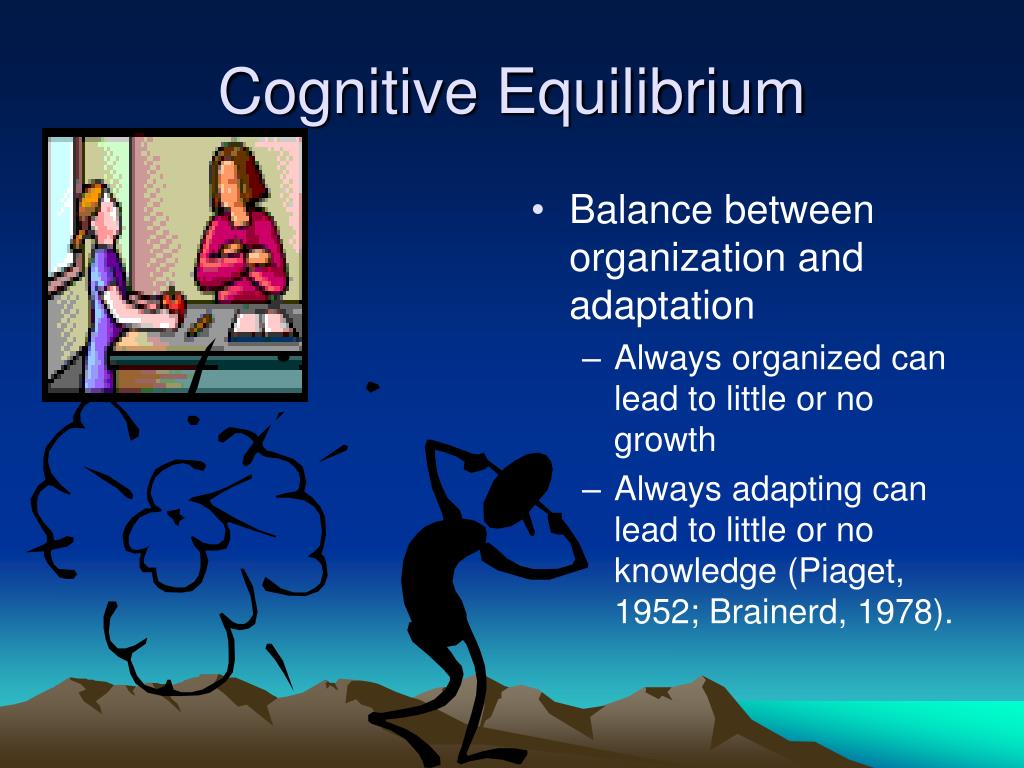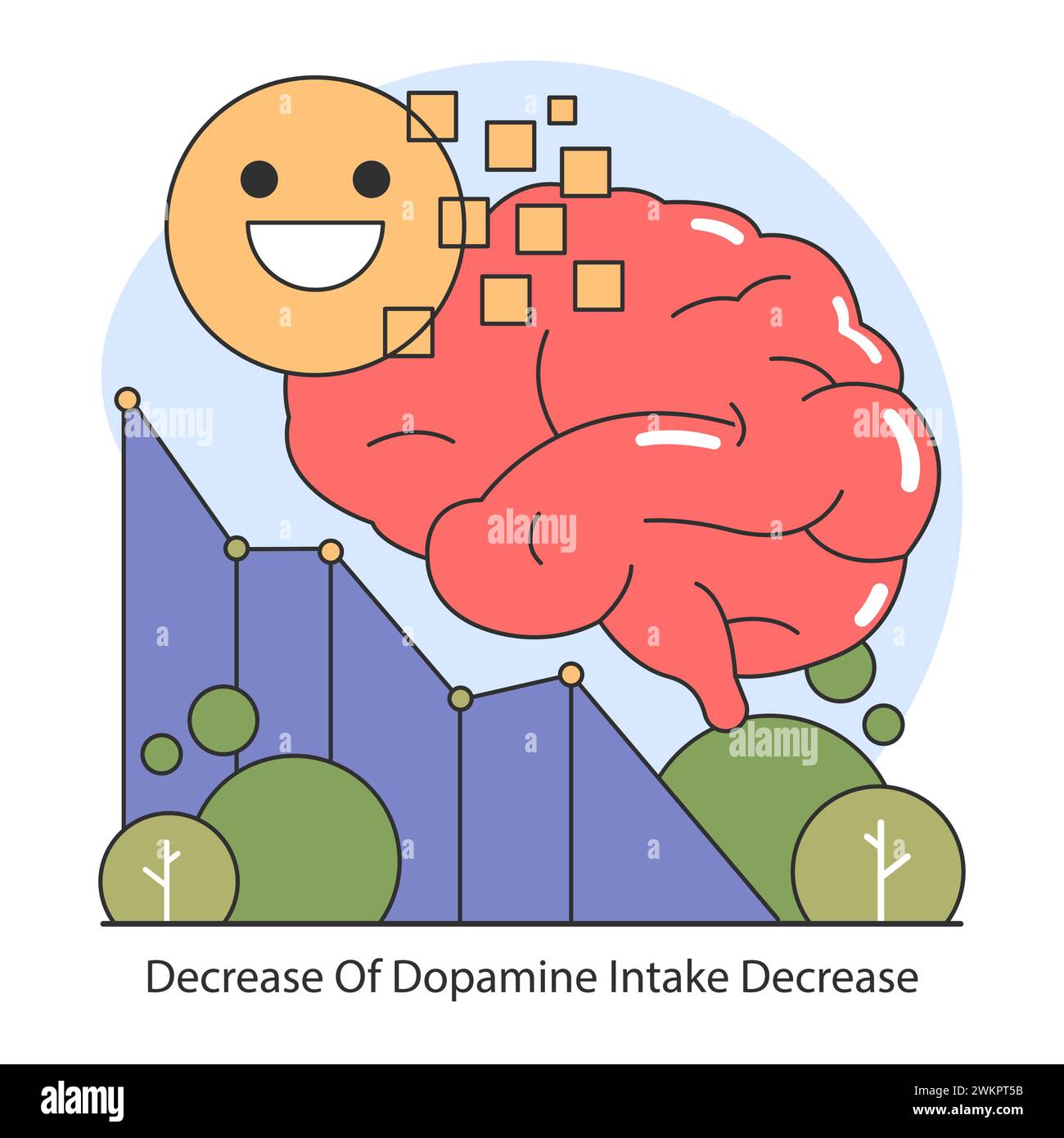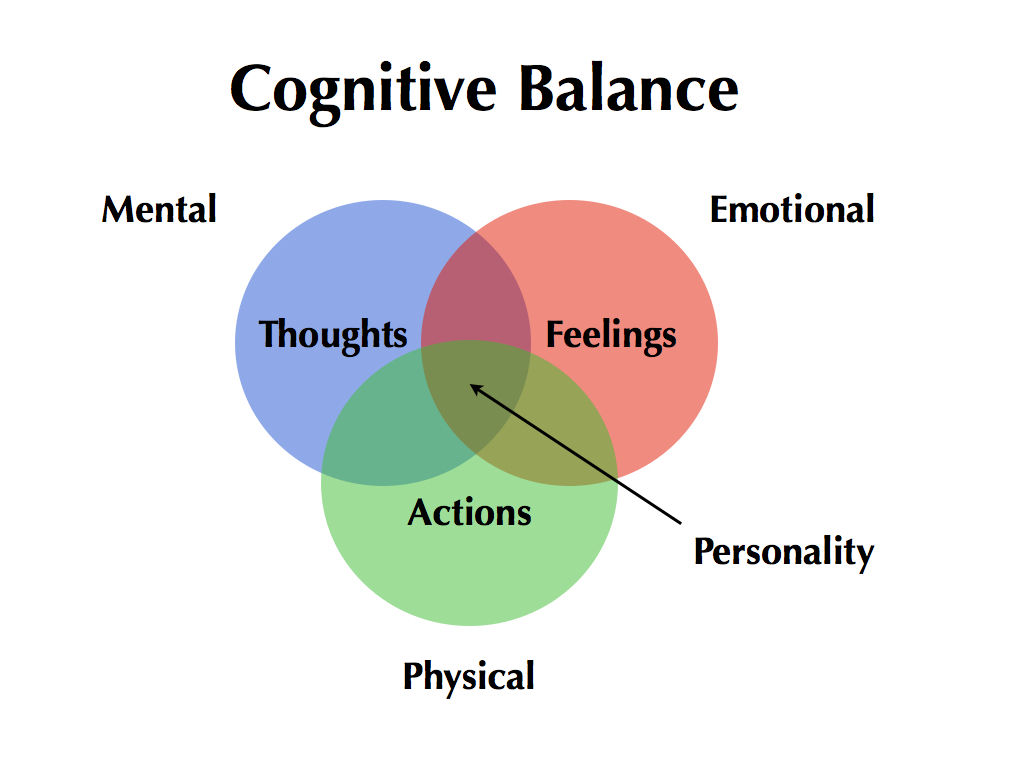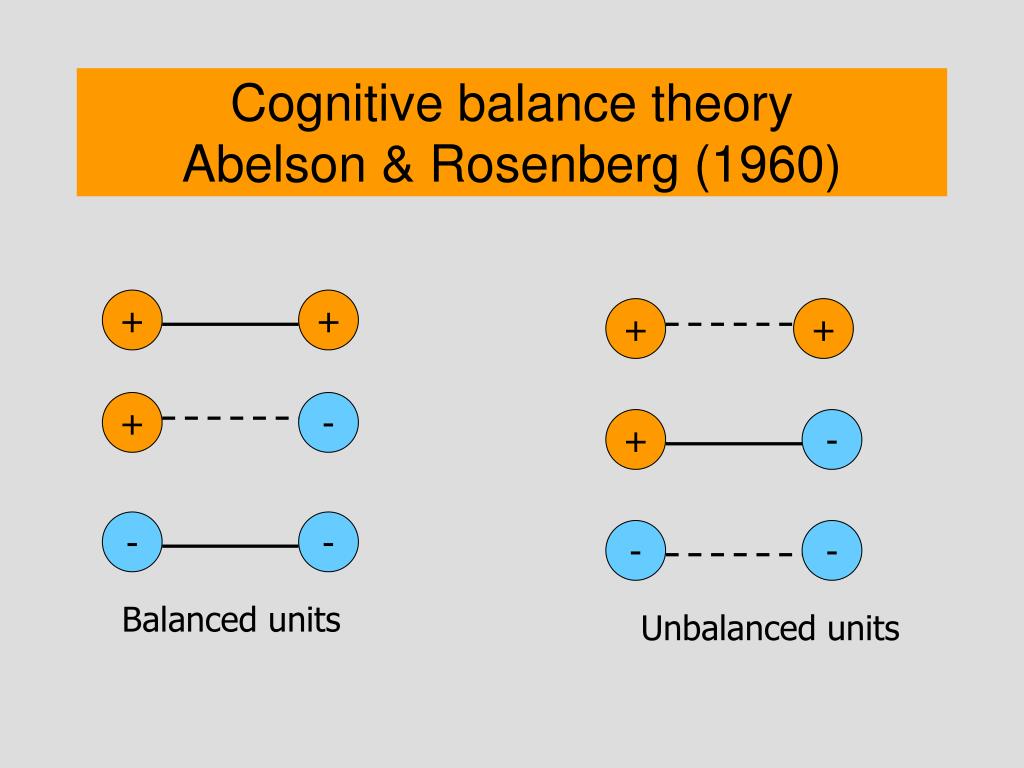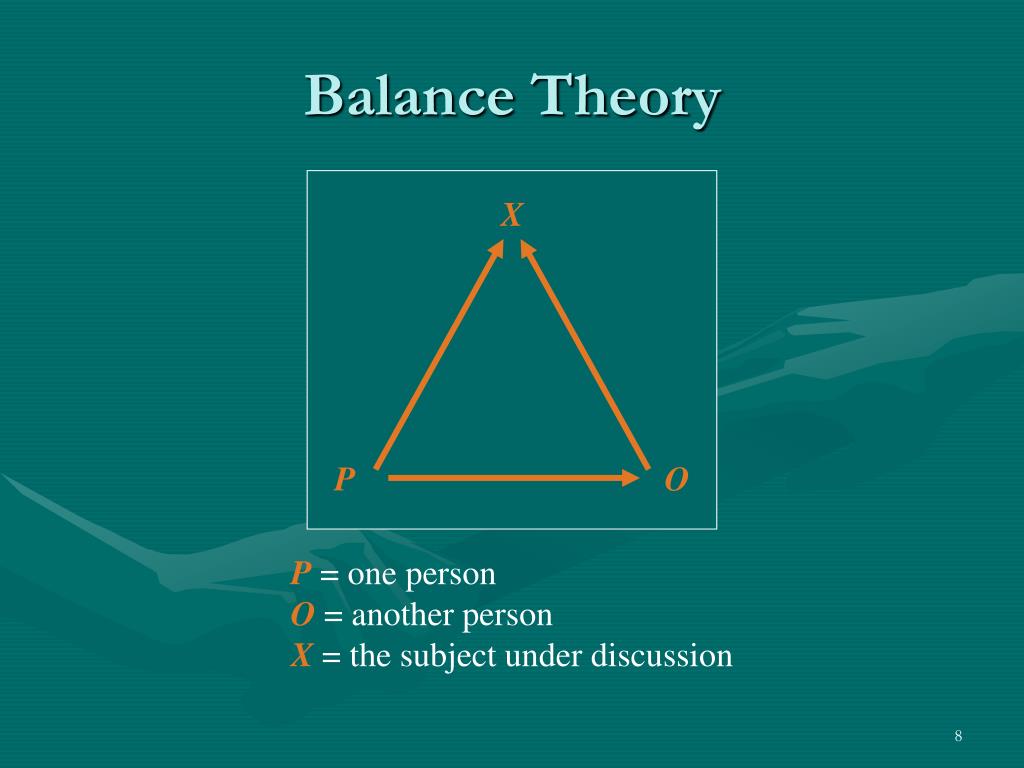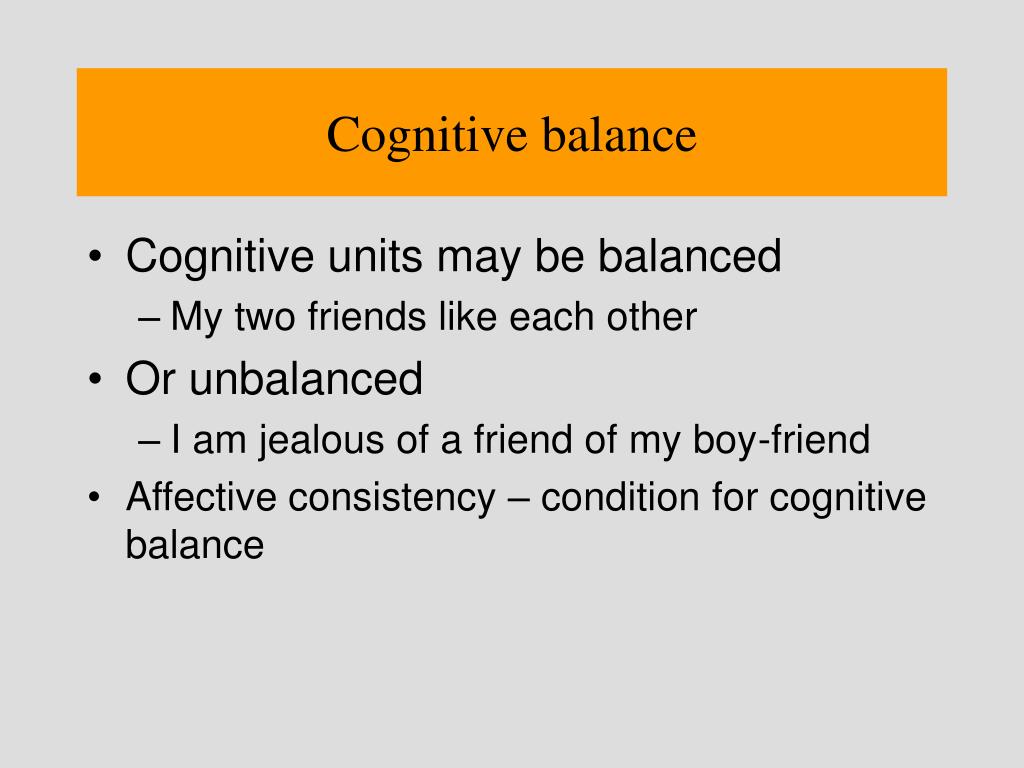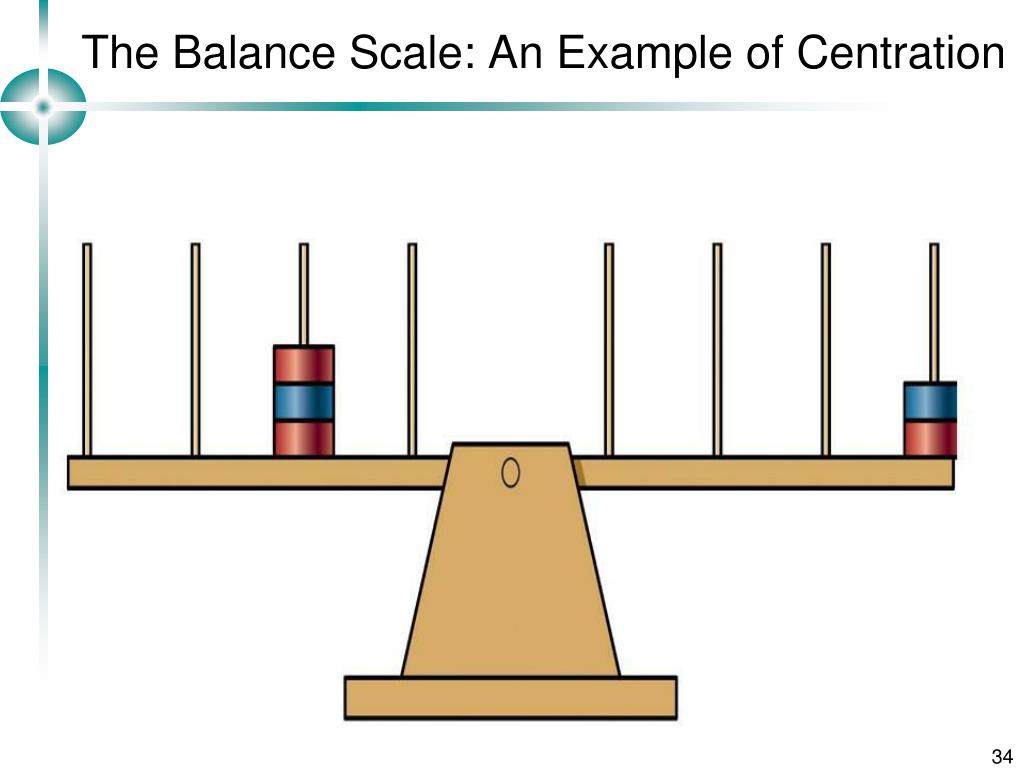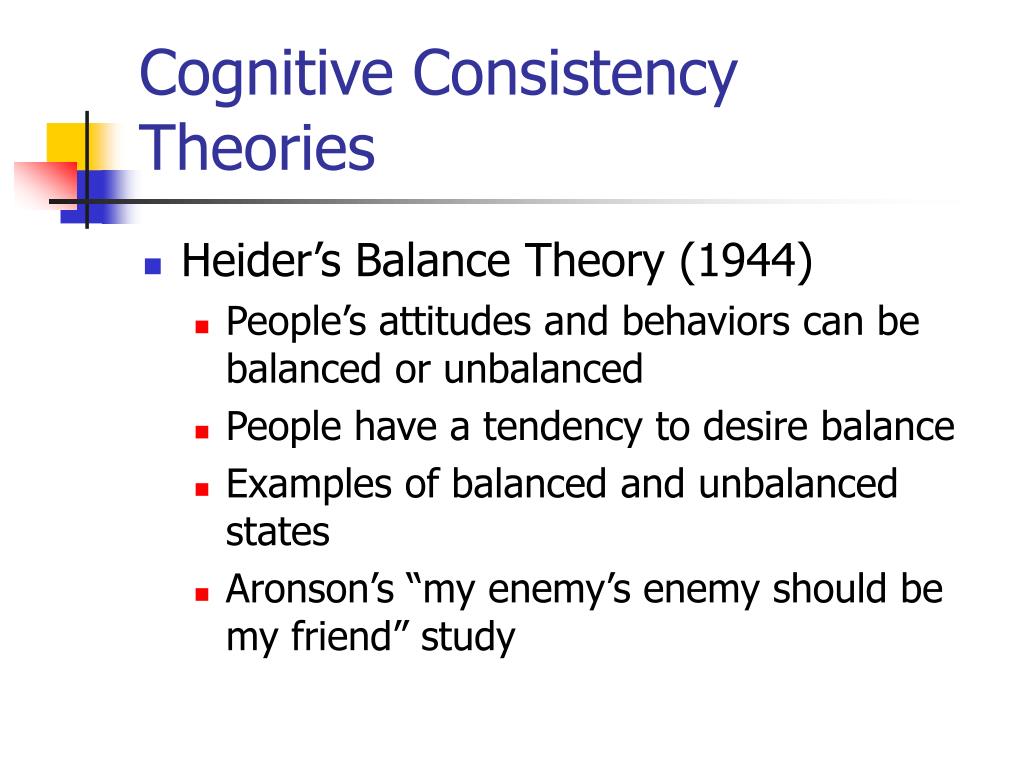Cognitive Balance - Cognitive balance theory was devised by heider (1946, 1958) to explain how people resolve inconsistencies in their interpersonal affects. The individual views some elements as good. Balance principles have been widely applied in the study of interpersonal relations, attitude change, social cognition, and other areas of research. Heider's balance theory in psychology proposes that people strive for cognitive consistency in their attitudes and. Balance theory explains how people develop and maintain consistency in patterns of their liking and disliking of each. A delicate dance of attraction and repulsion, balance theory unravels the intricacies of human relationships and the cognitive forces.
Heider's balance theory in psychology proposes that people strive for cognitive consistency in their attitudes and. A delicate dance of attraction and repulsion, balance theory unravels the intricacies of human relationships and the cognitive forces. Balance principles have been widely applied in the study of interpersonal relations, attitude change, social cognition, and other areas of research. Cognitive balance theory was devised by heider (1946, 1958) to explain how people resolve inconsistencies in their interpersonal affects. The individual views some elements as good. Balance theory explains how people develop and maintain consistency in patterns of their liking and disliking of each.
Cognitive balance theory was devised by heider (1946, 1958) to explain how people resolve inconsistencies in their interpersonal affects. Heider's balance theory in psychology proposes that people strive for cognitive consistency in their attitudes and. A delicate dance of attraction and repulsion, balance theory unravels the intricacies of human relationships and the cognitive forces. Balance theory explains how people develop and maintain consistency in patterns of their liking and disliking of each. The individual views some elements as good. Balance principles have been widely applied in the study of interpersonal relations, attitude change, social cognition, and other areas of research.
PPT Piaget’s Theory of Cognitive Development In Children PowerPoint
Heider's balance theory in psychology proposes that people strive for cognitive consistency in their attitudes and. The individual views some elements as good. Cognitive balance theory was devised by heider (1946, 1958) to explain how people resolve inconsistencies in their interpersonal affects. Balance principles have been widely applied in the study of interpersonal relations, attitude change, social cognition, and other.
Dopamine fasting concept. Graph and brain imagery depict the reduction
The individual views some elements as good. A delicate dance of attraction and repulsion, balance theory unravels the intricacies of human relationships and the cognitive forces. Heider's balance theory in psychology proposes that people strive for cognitive consistency in their attitudes and. Cognitive balance theory was devised by heider (1946, 1958) to explain how people resolve inconsistencies in their interpersonal.
Coach Ingo Life Coaching Personal Development Stress Management
A delicate dance of attraction and repulsion, balance theory unravels the intricacies of human relationships and the cognitive forces. Cognitive balance theory was devised by heider (1946, 1958) to explain how people resolve inconsistencies in their interpersonal affects. Balance theory explains how people develop and maintain consistency in patterns of their liking and disliking of each. The individual views some.
PPT Attitudes PowerPoint Presentation, free download ID5416585
The individual views some elements as good. Balance principles have been widely applied in the study of interpersonal relations, attitude change, social cognition, and other areas of research. Balance theory explains how people develop and maintain consistency in patterns of their liking and disliking of each. Cognitive balance theory was devised by heider (1946, 1958) to explain how people resolve.
Cognitive Balance Definition Sale Prices
The individual views some elements as good. Balance theory explains how people develop and maintain consistency in patterns of their liking and disliking of each. Heider's balance theory in psychology proposes that people strive for cognitive consistency in their attitudes and. A delicate dance of attraction and repulsion, balance theory unravels the intricacies of human relationships and the cognitive forces..
Cognitive Behavior Theory
Heider's balance theory in psychology proposes that people strive for cognitive consistency in their attitudes and. The individual views some elements as good. Cognitive balance theory was devised by heider (1946, 1958) to explain how people resolve inconsistencies in their interpersonal affects. A delicate dance of attraction and repulsion, balance theory unravels the intricacies of human relationships and the cognitive.
PPT Attitudes PowerPoint Presentation, free download ID5416585
Balance theory explains how people develop and maintain consistency in patterns of their liking and disliking of each. Balance principles have been widely applied in the study of interpersonal relations, attitude change, social cognition, and other areas of research. The individual views some elements as good. Cognitive balance theory was devised by heider (1946, 1958) to explain how people resolve.
Dopamine fasting concept. Graph and brain imagery depict the reduction
Heider's balance theory in psychology proposes that people strive for cognitive consistency in their attitudes and. A delicate dance of attraction and repulsion, balance theory unravels the intricacies of human relationships and the cognitive forces. The individual views some elements as good. Balance theory explains how people develop and maintain consistency in patterns of their liking and disliking of each..
PPT Piaget’s Theory of Cognitive Development PowerPoint Presentation
A delicate dance of attraction and repulsion, balance theory unravels the intricacies of human relationships and the cognitive forces. Cognitive balance theory was devised by heider (1946, 1958) to explain how people resolve inconsistencies in their interpersonal affects. Balance principles have been widely applied in the study of interpersonal relations, attitude change, social cognition, and other areas of research. Balance.
PPT Psychology 331 Social Psychology PowerPoint Presentation, free
Balance theory explains how people develop and maintain consistency in patterns of their liking and disliking of each. A delicate dance of attraction and repulsion, balance theory unravels the intricacies of human relationships and the cognitive forces. The individual views some elements as good. Heider's balance theory in psychology proposes that people strive for cognitive consistency in their attitudes and..
Balance Theory Explains How People Develop And Maintain Consistency In Patterns Of Their Liking And Disliking Of Each.
Balance principles have been widely applied in the study of interpersonal relations, attitude change, social cognition, and other areas of research. The individual views some elements as good. A delicate dance of attraction and repulsion, balance theory unravels the intricacies of human relationships and the cognitive forces. Heider's balance theory in psychology proposes that people strive for cognitive consistency in their attitudes and.
